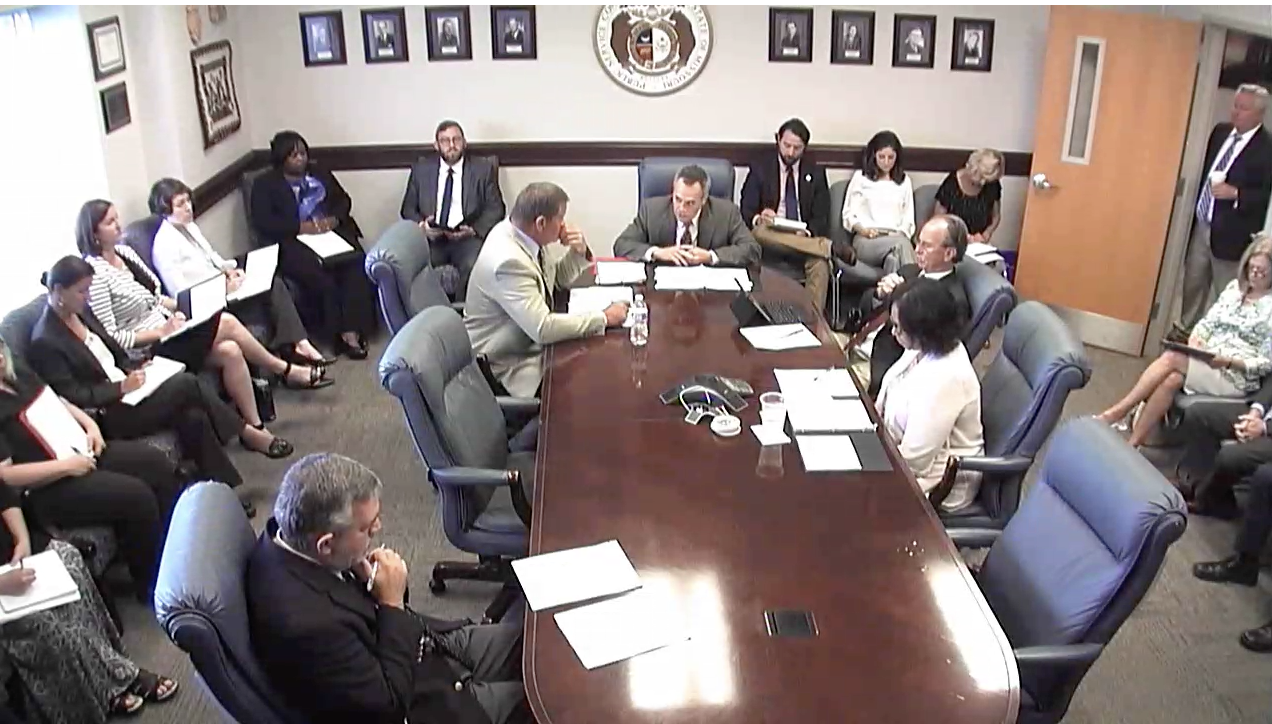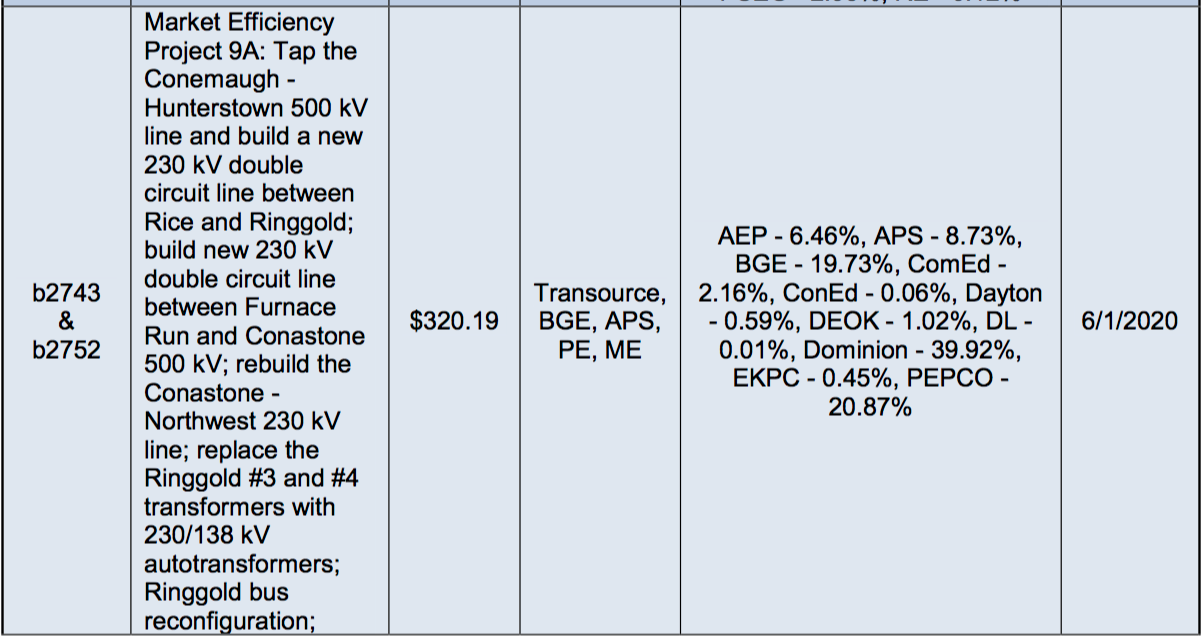Officials with Clean Line Energy Partners are complaining about Missouri and its set of laws, as if the company didn’t know what it was getting into when it proposed stringing a high-voltage power line across the state.
...the problem is Clean Line has not yet done enough to allay concerns of key decision-makers — in this case, county commissioners who by law have a big say in this matter.
Our preference is for Clean Line to continue to negotiate with the counties where it has met opposition. Short of that, both opponents and Clean Line should expect to be governed by the web of laws and regulations — both state and federal — that govern these matters.
The sheer arrogance of these out-of-state interlopers will be their undoing.
The News-Press must realize that the only thing standing between Clean Line and its success is... well... Clean Line! During recent oral argument before the Missouri PSC, Clean Line begged the PSC to issue an advisory opinion on the merits of the project, even if the PSC denied the project. Clean Line's attorney told the PSC that it needed that advisory opinion to take to the counties in order to convince them to assent to the project.
CHAIRMAN HALL: Yes, I have a few. I want to start with your alternative argument that
the Commission go through the Tartan analysis, determine that Grain Belt has met each of those factors, but then withhold issuing the certificate. Would that be an appealable decision?
MR. ZOBRIST: I think it would be because if you construe Neighbors United to say that you cannot issue a CCN, you're making these other findings and you're simply withholding it at that point. To be honest, I really haven't thought through that. It may be -- it depends on what your language is. I think if you say that this part is final, you view it as appealable, that that might be something for us to take a look at because it may not be an appealable order until either --
CHAIRMAN HALL: I think that would be your worst-case scenario. Then you're sitting in limbo here and you can't take the order up. MR. ZOBRIST: Well, I'm being the optimist, Chairman. I'm assuming we get favorable factual findings on the public convenience and necessity. We'd use those to go to the county commissions and say the Public Service Commission has weighed in and says the public is not going to be harmed and you should issue your county assents and then we'll be back. Now, if you -- if you deny it, if you dismiss it, then I think --
CHAIRMAN HALL: Well, that's --
MR. ZOBRIST: Pardon me. Go ahead.
CHAIRMAN HALL: That, to be perfectly blunt, seems a little naive to me that this commission's decision on public interest is going to sway the county commissions, and so --
MR. ZOBRIST: Like I said --
CHAIRMAN HALL: I think the reality is that that would be almost your worst nightmare because then the case just sits in limbo here and you can't take it up on appeal.
MR. ZOBRIST: Well, let me put it this way. The nightmare is if you just dismiss it out of hand because then the project's dead. The
problem --
CHAIRMAN HALL: I would say that's better than this because at least then -- oh, okay. I'm sorry. I'm with you now. Keep going.
And the people of Missouri perhaps think that's a step too far for a bunch of interlopers who want to use Missouri land and resources for their own gain. Clean Line is financed by deep pocketed investors from New York, Texas and the United Kingdom. None of these investors live or work anywhere near Missouri and won't have to suffer the consequences of their own actions. These investors have knowingly funneled around $200M into a very risky investment in Clean Line Energy Partners. When Clean Line goes belly up, these investors lose their entire investment in the company. I'll assume these sophisticated investors went into this transaction with their eyes wide open, so they must not have invested more than they could stand to lose. They'll probably hardly feel it. On the other hand, the damage to Missouri would now not only be a scar on its landscape and an obstacle to its productivity, but a long-lasting surrender of its authority through legislative change. I don't think Missouri is going to lay down willingly, and instead of winning the state's cooperation, Clean Line has obliviously lit a fire in Missouri's belly.
Perhaps Clean Line's executives don't really care if they ever build a project or not. Perhaps their only interest at this point is to continue their own personal gravy trains as long as possible, even though they realize this train is headed for a gorge where the bridge is out. As long as the investors keep handing them cash to engage in hopeless battles, like trying to get Missouri to legislate away its own authority, the executives continue to live high on the hog. That could be the only explanation for why Clean Line even wants to engage in Missouri when the fate of this project is currently in the hands of the Illinois Court system.
Did you listen to the oral arguments at the Fifth District Court of Appeals on the Illinois Commerce Commission's grant of a permit to Grain Belt Express under the wrong statute of Illinois law? If you haven't, you should. Based on questions from the justices, it isn't looking too swell for Clean Line, although the Court has yet to issue its opinion in this case. The opinion can come at any time.
As well, did you watch to the oral arguments before the Illinois Supreme Court on whether the Rock Island Clean Line can ever be considered a public utility? That didn't go so well for Clean Line either. An opinion could be issued at any time. And, if RICL isn't a utility under Illinois law, then neither is GBE. The Court's opinion can yank the rug right out from under both Clean Line's Illinois projects at any time.
And speaking of the Rock Island Clean Line, did you know that the Iowa Legislature legislated it's ability to use eminent domain out of existence during its last session?
May 12, 2017
Today is a day to celebrate!! It is a historic day for property rights!
Governor Branstad signed a bill Into law forbidding merchant high voltage transmission lines such as RICL from having condemnation power to take private property by eminent domain. Click here to read
Senate File 516: an Act relating to state and local finances by making appropriations providing for legal and regulatory responsibilities, concerning taxation, and providing for other properly related matters, and including effective date and retroactive applicability provisions. This bill passed the Iowa House on April 21, 55-39 and the Iowa Senate on April 21, 27-13.
Read the language related to merchant transmission lines beginning on page 18 of the bill.
Honestly, I don't think Clean Line Energy Partners is ever going to accomplish anything, except to spend its investors' money tilting at windmills and engaging in hopeless and increasingly expensive battles at the state and federal level. How much longer must the party in Houston go on?








 RSS Feed
RSS Feed